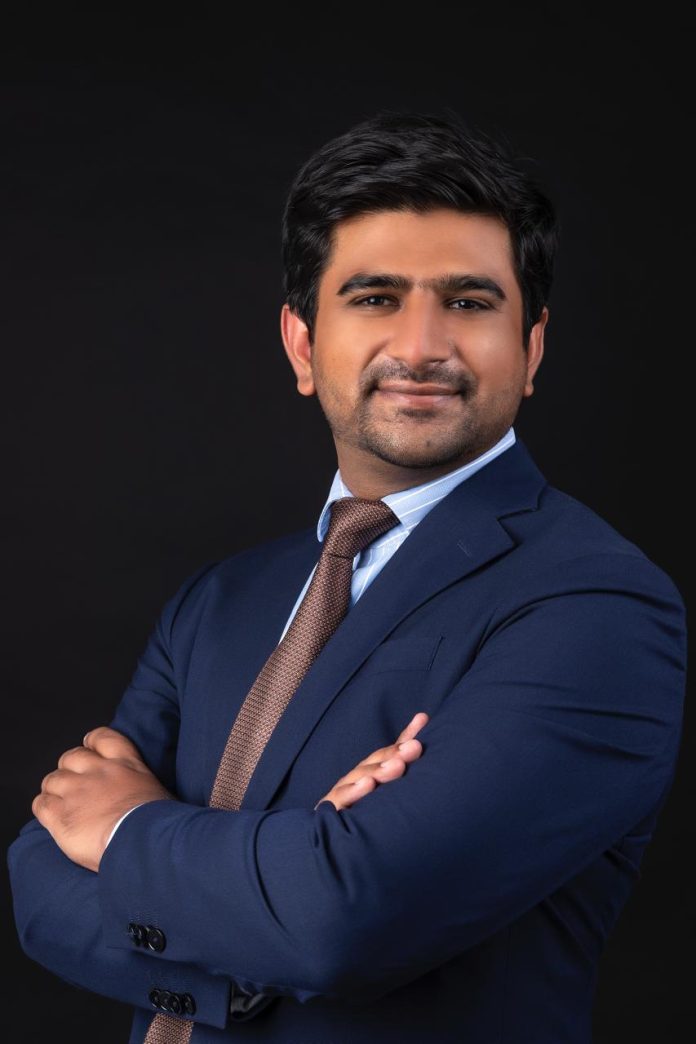In the Gulf’s rapidly growing utilities and district cooling sector, a quiet but important shift is underway: operators are moving from manual, spreadsheet-based reporting to governed, analytics-first decision-making. At the centre of this transition sits professionals who can speak both the language of finance and the language of digital transformation. Muhammad Mansoor Ansar is one of those rare profiles.
Based in the UAE and working with a leading GCC district cooling operator, Mansoor has built a career around turning raw operational and business data into something executives can actually use: investment-ready cases, energy-efficiency insights, and ESG reports that are consistent, defensible and repeatable. Coming from an accounting and finance background and later moving into analytics and digital transformation, he bridges a gap that many utilities in the region are still trying to close.
From Finance to Digital Stewardship
Mansoor’s early career in budgeting, CAPEX/OPEX planning and performance management gave him a strong grasp of how infrastructure decisions are actually made: not on hype, but on numbers. That foundation has proved invaluable as utilities in the region started asking harder questions—how do we prove energy savings, how do we standardize reporting across multiple sites, how do we give the board a single view of performance?
Instead of treating digital as a standalone IT exercise, he positioned it as an enabler of financial and operational discipline. His work has focused on bringing together operations data with enterprise systems so that commercial, technical, and sustainability teams all work off the same truth. That’s what turns data into governance.
Making ESG Reporting Practical
Across the GCC, operators are under pressure to show progress on energy efficiency and emissions. The problem is that a lot of this data sits in different systems, in different formats, and is reported at different times. Mansoor worked on streamlining this into automated, audit-friendly reporting flows that reduce manual work and make ESG less about chasing spreadsheets and more about monitoring actual performance over time.
The outcome is simple but powerful: leadership gets consistent KPI packs, country or business-unit heads get clarity on what’s driving performance, and the organisation can talk to banks, regulators or potential partners using the same definitions. In a sector where infrastructure financing increasingly asks for sustainability-linked disclosures, that kind of orderliness is a real asset.
Digital Transformation for Operations
While much of the attention in utilities goes to physical assets—plants, networks, equipment—the real multiplier now lies in how those assets are monitored and managed. Mansoor has contributed to initiatives that centralize visibility of operations, standardize dashboards, and give management timely insights on reliability, downtime, and efficiency, without exposing sensitive plant-level details.
What stands out in his approach is prudence: digital transformation, in his view, must respect the operator’s confidentiality, cybersecurity posture, and commercial sensitivities. That means focusing on framework, process, and governance—rather than exposing internal tags, system names, or plant configurations. It’s the shape of the solution that matters, not the proprietary ingredients.
Recognized for Impact
Inside his organisation, Mansoor’s work has been recognised through progression into a leadership-track role in analytics and digital transformation, as well as strong performance evaluations tied to real business outcomes. That recognition reflects a broader trend in the utilities sector: data professionals who can translate analytics into board-level value are moving up faster than pure technologists or pure finance people.
His portfolio today cuts across operations, capital projects, sustainability, and executive reporting—which is unusual, and signals trust from senior management. It also shows that utilities in the region are ready to invest in people who can industrialize data, not just analyse it.
Aligned with Where the Sector is Heading
Globally, utilities and district cooling operators are moving toward four big themes: efficiency, remote/centralized operations, ESG assurance, and integration of IT/OT without compromising security. Mansoor’s body of work sits squarely in that intersection.
- Efficiency: giving management transparent, comparable views of performance so they can prioritize improvements.
- Centralization: enabling decision-making from the head office while plants continue to operate safely in the field.
- ESG assurance: making sustainability claims verifiable through structured data.
- Bridging business and tech: ensuring that finance, operations, and digital teams work off the same definitions.
This is especially important in the GCC context, where utilities often operate across multiple jurisdictions and need to present a unified picture to shareholders, government stakeholders, and financing partners—without disclosing plant-specific commercial information.
A Regional Voice for Responsible Digitalization
What also makes Mansoor’s profile timely is his focus on responsible, non-intrusive digitalization—digital that improves transparency and performance, but still respects NDA boundaries, internal naming conventions, and client/operator confidentiality. In an era when many case studies overshare technical internals, his approach shows that you can talk about value, method, and leadership without revealing what must remain confidential.
Conclusion
Muhammad Mansoor Ansar represents a new kind of utility leader in the GCC: financially literate, data-driven, ESG-aware, and careful about confidentiality. He has shown that you don’t need to publish internal schemas or plant names to prove impact—you need to show structure, repeatability, and alignment with the operator’s growth and sustainability goals.
As district cooling and wider utility services continue to expand in the region, profiles like his will be central to making sure that digital transformation is not just a slogan but an operating reality—one that boards can trust, regulators can review, and international partners can recognise.


